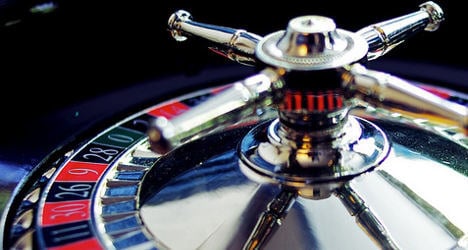US casino operator Las Vegas Sands said Friday it has dropped plans to invest over $30 billion (€21.8 billion) in a mega-resort scheme that promised 260,000 direct and indirect jobs for crisis-hit Spain.
The company, owned by US billionaire Sheldon Adelson, said it would "continue aggressive pursuit of opportunities in Asia" where it already operates properties in Singapore and Macao.
"Developing integrated resorts in Europe has been a vision of mine for years, but there is a time and place for everything," Adelson said in a statement.
"Right now our focus is on encouraging Asian countries, like Japan and Korea, to dramatically enhance their tourism offering through the development of integrated resorts there," he added.
Las Vegas Sands, the world's biggest casino company by market value, said in February it had chosen Alcorcon, a suburb of Madrid, as the site for what would have been Europe's largest resort.
The "Eurovegas" project called for the construction of four casino complexes with 12 hotels providing 36,000 rooms, nine theatres, three golf courses, and convention centres over a period of 10–15 years.
The project was welcomed by Spain's centre-right government in a country grappling with a jobless rate of 26 percent.
But opponents, which included the Roman Catholic Church and members of Spain's "indignant" movement against social equality, complained that the casinos would spawn prostitution and crime.
SEE ALSO: The Local's opinion piece on the Eurovegas mega-casino project.
They also argued the project would mark a return to the excesses of Spain's property bubble, which imploded in 2008 triggering a double-dip recession.
Adelson had been pressuring the government to exempt the projects from the country's anti-tobacco law, one of the strictest in Europe, but this had been fiercely opposed by anti-smoking campaigners.
Las Vegas Sands operates The Venetian and The Palazzo casinos in Las Vegas and Marina Bay Sands in Singapore. It also operates properties in Macao.
Don't miss stories about Spain, join us on Facebook and Twitter.



 Please whitelist us to continue reading.
Please whitelist us to continue reading.
Member comments